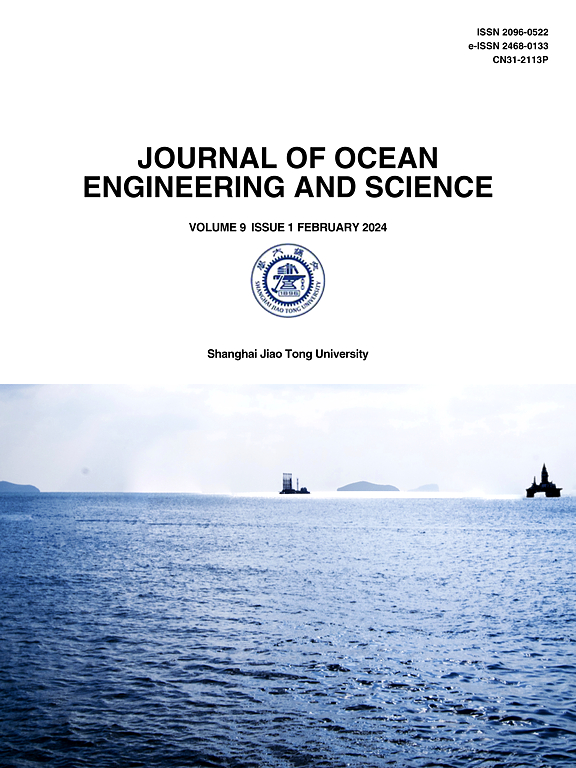基于机器学习的贝叶斯决策支持系统促进双头渡船的高效航行
IF 11.8
1区 工程技术
Q1 ENGINEERING, MARINE
引用次数: 0
摘要
通过利用与船载数据收集系统集成的智能决策支持,可以更高效地运营船舶。本研究提出了一种基于贝叶斯优化的决策支持系统,该系统利用机器学习方法建立的船舶性能模型,帮助确定双头渡轮两个发动机的运行设定点。通过优化渡轮在船尾和船头发动机之间的功率分配,决策支持系统(DSS)将同时尝试利用贝叶斯优化方法,在一系列操作约束条件下保持渡轮的 ETA 固定不变。其目标是最大限度地减少单个航程的燃油消耗。根据模拟环境,在 ETA 不变的情况下,DSS 最多可减少 40% 的燃料消耗。一艘双头渡轮的最终全尺寸实验表明,平均油耗降低了 15%,其中至少有一半是通过优化船首和船尾发动机之间的功率分配实现的。本文章由计算机程序翻译,如有差异,请以英文原文为准。
A machine learning based Bayesian decision support system for efficient navigation of double-ended ferries
Ships can be operated more efficiently by utilizing intelligent decision support integrated with onboard data collection systems. In this study, a Bayesian optimization-based decision support system, which utilizes ship performance models built by machine learning methods, is proposed to help determine the operational set-points of two engines for double-ended ferries. By optimizing the ferries’ power allocation between the stern and bow engines, the Decision Support System (DSS) will simultaneously attempt to keep the ETA of the ferry fixed under a set of operational constraints using the Bayesian optimization. Its objective is to minimize fuel consumption along individual trips. Based on simulation environment, the DSS can reduce at maximum 40 % fuel consumption with no significant change of the ETA. Final full-scale experiments of a double-ended ferry demonstrated an average of 15 %, where at least half of this saving was achieved by the optimized power allocation between bow and stern engines.
求助全文
通过发布文献求助,成功后即可免费获取论文全文。
去求助
来源期刊

Journal of Ocean Engineering and Science
Multiple-
CiteScore
11.50
自引率
19.70%
发文量
224
审稿时长
29 days
期刊介绍:
The Journal of Ocean Engineering and Science (JOES) serves as a platform for disseminating original research and advancements in the realm of ocean engineering and science.
JOES encourages the submission of papers covering various aspects of ocean engineering and science.
 求助内容:
求助内容: 应助结果提醒方式:
应助结果提醒方式:


